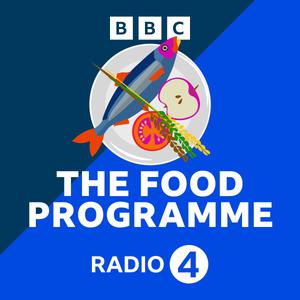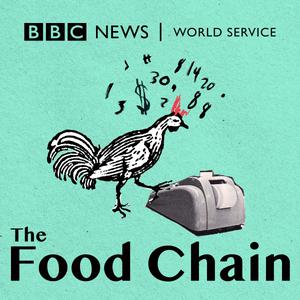
IFTNEXT Food Disruptors
IFTNEXT Food Disruptors
The Institute of Food Technologists (IFT) brings you thought-provoking conversations from some of the most innovative voices in the science of food and beyond.
- 46 minutes 31 secondsEpisode 34: How Ingredion is Working to Engage and Retain Top Talent
In a recent IFT compensation and career study, 41% of respondents said that seeking more supportive management was their reason for leaving an organization. 62% said that higher salary was their main reason to move to a new organization. While in the last year compensation has soared, it is just one of the many ways organizations have worked to retain talent. We’ve convened this podcast to discuss employee engagement, DEI, talent retention, affinity groups for employees/business resource groups, and what Ingredion is doing to not just keep top talent but enrich the lives of their employees.
Guests:
Harper Hall, he/they, Global Flavor Applications and Technical Service Leader, PureCircle by Ingredion
Erica Jenkins, she/her, Sr. Specialist, Diversity, Equity and Inclusion (DEI), Ingredion
22 November 2022, 9:57 am - 40 minutes 1 secondEpisode 33: Global Food System Challenge Growth Grant Winners
Join us to celebrate the Global Food System Challenge Growth Grant Winners. Representatives from Food Systems for the Future (FSF Institute), iDE Global, and the African Center for Technology Studies discuss their work and the role that the generous funding from Seeding The Future Foundation plays in helping to make healthier diets more accessible and empowers consumers to make choices benefitting both personal and planetary health.
13 June 2022, 11:22 am - 29 minutes 26 secondsEpisode 32: Global Food System Challenge Grand Prize Winners
Join us to celebrate the Global Food System Challenge Grand Prize Winners. Representatives from the International Rice Research Institute, Solar Freeze, and WorldFish discuss their work and the role that the generous funding from Seeding The Future Foundation plays in helping to make healthier diets more accessible and empowers consumers to make choices benefitting both personal and planetary health.
13 June 2022, 11:20 am - 38 minutes 22 secondsEpisode 31: Seafood Traceability
Since 2017, IFT’s Global Food Traceability Center has worked with the World Wildlife Fund to advance a unified framework by convening seafood companies and other relevant stakeholders as part of the Global Dialogue on Seafood Traceability. We’ve convened this podcast to discuss the latest in traceability, particularly in the seafood industry.
9 August 2021, 9:51 am - 28 minutes 32 secondsEpisode 30: Seeding the Future Challenge
This year, the Seeding the Future Foundation is funding the first annual Seeding the Future Global Food System Challenge, which aims to inspire and support passionate, diverse and multidisciplinary teams to create game-changing innovations that will help transform the food system to be more sustainable, make healthier diets more accessible, and empower consumers to make choices benefitting both, personal and planetary health. The Institute of Food Technologists (IFT) is proud to officially launch the Challenge, and applications will open on June 7.
7 May 2021, 2:08 pm - 45 minutes 30 secondsEpisode 29: All About Food Safety CultureIn this podcast, we discuss food safety culture, including how food safety culture is established, measured, and how they are expected to change in light of ongoing advancements in food science and policy. Our guests include Hugo Gutierrez, Global Food Safety and Quality Officer for Kerry, and Bob Gravani, Professor Emeritus of Food Science and Director Emeritus of the National Good Agricultural Practices (GAPs) Program at Cornell University.7 April 2021, 9:55 pm
- 50 minutes 47 secondsEpisode 28: Spicing Up the Future of Food
With more and more people focusing on their health these days, it’s no surprise that consumers are looking to spice up their culinary selections. But long before they became a part of our creative recipes, herbs and spices have had a long history of being celebrated for their medicinal properties, well before culinary use! Modern science has now shown that many of them carry remarkable health benefits offering great opportunities for new product development and innovation.
In this episode we’ll explore and expand on findings shared in the recent IFT Food Technology magazine article entitled, “Spicy Nutrition.” In this podcast we’ll focus on some of nature’s herbs, spices and the extracts that offer potential health benefits. We’ll also talk with the article’s author, Linda Ohr, about what the research tells us, as well as some entrepreneurial companies who have tapped these spices’ hidden potential for their current and future product innovation.
Host: Matt Teegarden
Guests:
Linda Ohr, contributing editor of IFT’s Food Technology magazine
Amy Rothstein, founder of DONA
Emily Griffith, founder of Lil Bucks snacks7 March 2021, 1:03 pm - 39 minutesEpisode 27: Understanding and Addressing Global Hunger
Today’s discussion includes Dr. William Moseley, a DeWitt Wallace Professor of geography and director of the Food, Agriculture & Society Program at Macalester College in Saint Paul, Minnesota, and Dr. Barbara Burlingame, a professor of Nutrition and Food Systems at Massey University’s College of Health. Both Dr. Moseley and Dr. Burlingame are members of the Steering Committee for the High Level Panel of Experts (HLPE) on food security and nutrition. They contributed to the FAO ‘s High Level Panel of Experts on Food Security and Nutrition’s 15th Report, “Food Security and Nutrition: Building a global narrative towards 2030.” The High Level Panel of Experts on food security and nutrition was established as part of the 2009 reform of the international governance of food security to advise the UN Committee on World Food Security (CFS), which is the foremost intergovernmental and international platform dealing with food security and nutrition. The HLPE aims to facilitate policy debates and inform policymaking by providing independent, comprehensive, and evidence-based analysis and advice at the request of CFS. And today, we’re going to discuss the issue of global hunger, which we know has been exacerbated by the COVID-19 pandemic.
25 January 2021, 3:31 pm - 17 minutes 17 secondsEpisode 26: Food Industry Trend Predictions for 2021Today’s podcast features Kelly Hensel, IFT’s senior digital editor, and John Ruff, IFT’s Chief Science and Technology Officer. We’ll be discussing a few of the major trends that both Food Technology Magazine’s editorial team as well as IFT’s Science, Policy, and Innovation team expect to play a major role in 2021. Tags: IFTNEXT, podcast, food business trends, consumer and marketplace trends6 January 2021, 4:30 pm
- 44 minutes 55 secondsEpisode 25: The New Dietary Guidelines
Today’s podcast is just in time for New Year’s resolutions because we’ll be talking about the upcoming 2020-2025 dietary guidelines for Americans. While the new guidelines are expected to be announced by the end of the year, we’re joined today by Barbara Schneeman, PhD, Professor Emerita at UC Davis and Richard Mattes, PhD, Distinguished Professor at Purdue University, to discuss the recommendations that were made. Schneeman served as chair of the 2020 Dietary Guidelines Advisory Committee, and Mattes was a member of the 2020 Dietary Guidelines Advisory Committee, specifically the Beverages and Added Sugars Subcommittee as well as the Frequency of Eating Subcommittee.
17 December 2020, 11:28 am - More Episodes? Get the App
Your feedback is valuable to us. Should you encounter any bugs, glitches, lack of functionality or other problems, please email us on [email protected] or join Moon.FM Telegram Group where you can talk directly to the dev team who are happy to answer any queries.
 The Proof with Simon Hill
The Proof with Simon Hill
 Stuff You Should Know
Stuff You Should Know
 Planet Money
Planet Money
 The Food Programme
The Food Programme
 A Taste of the Past
A Taste of the Past
 The Food Chain
The Food Chain